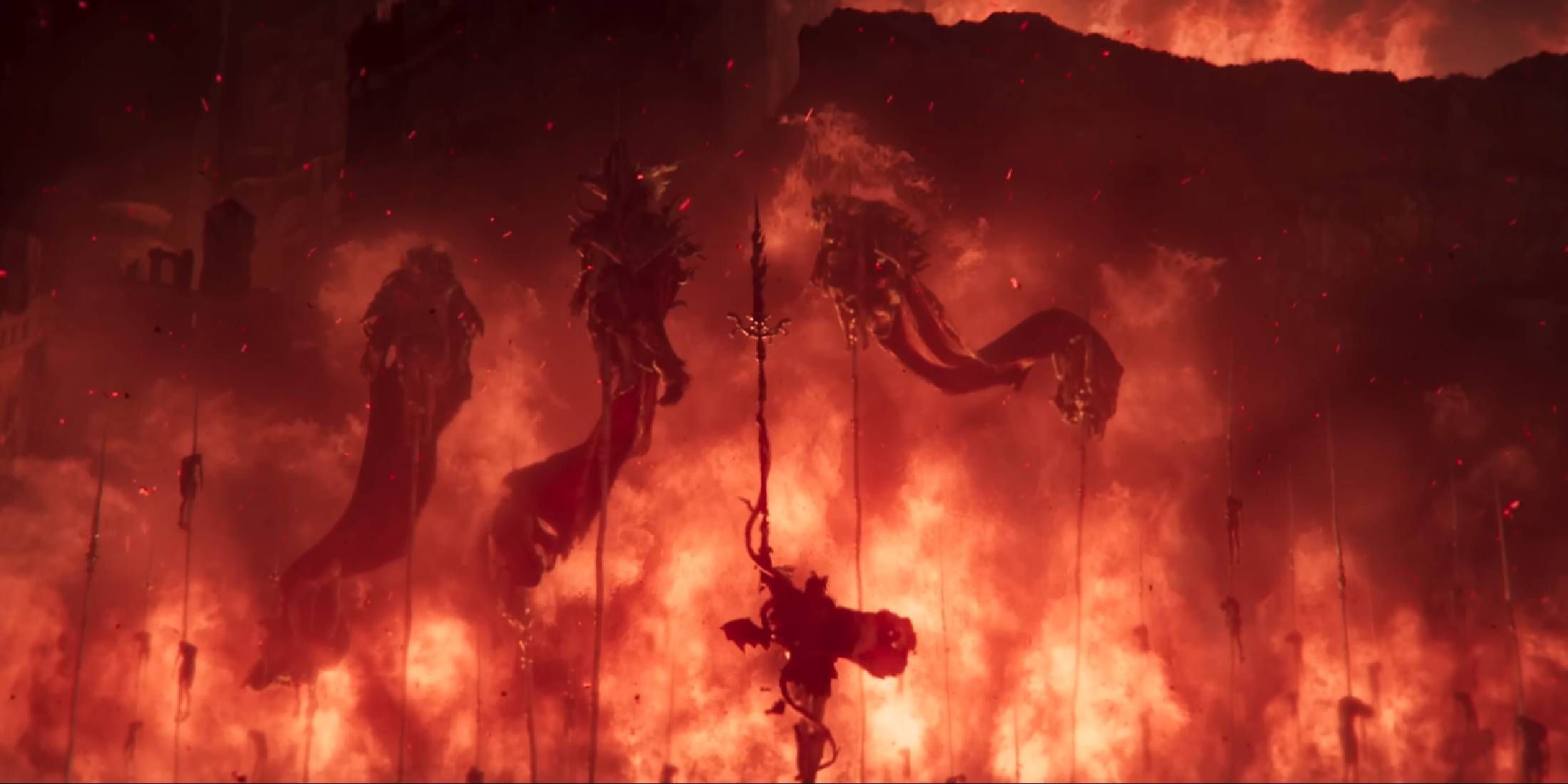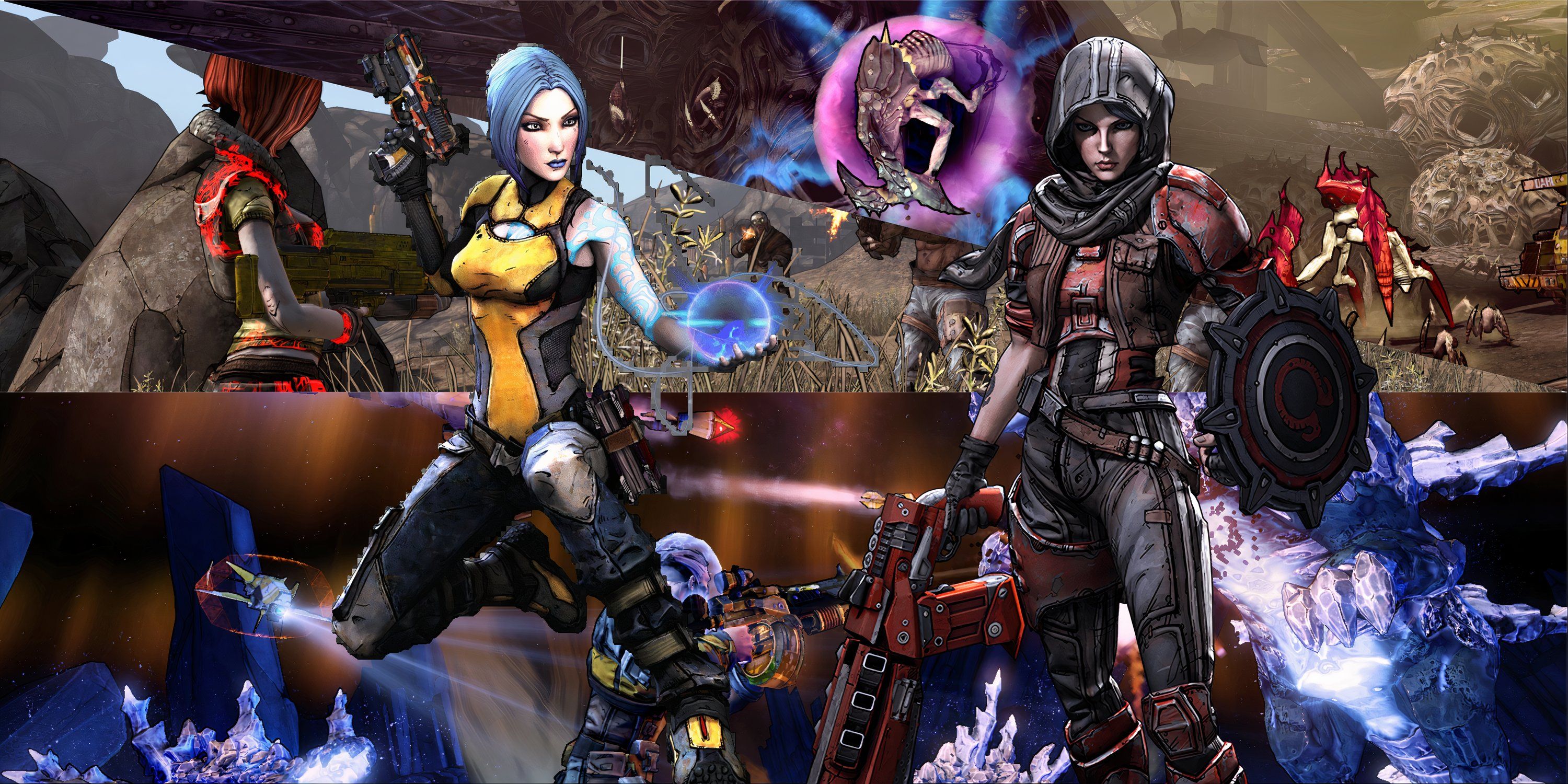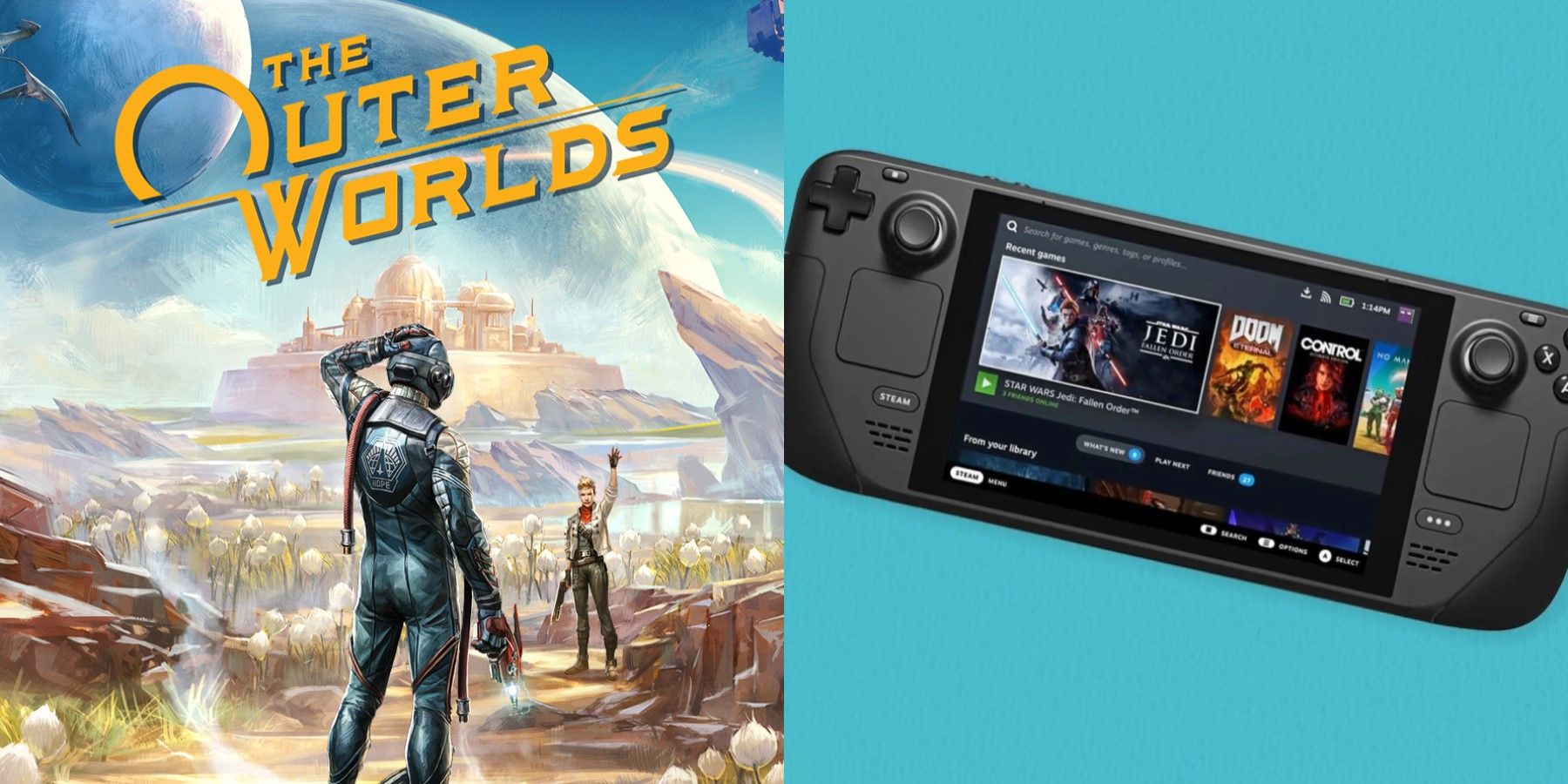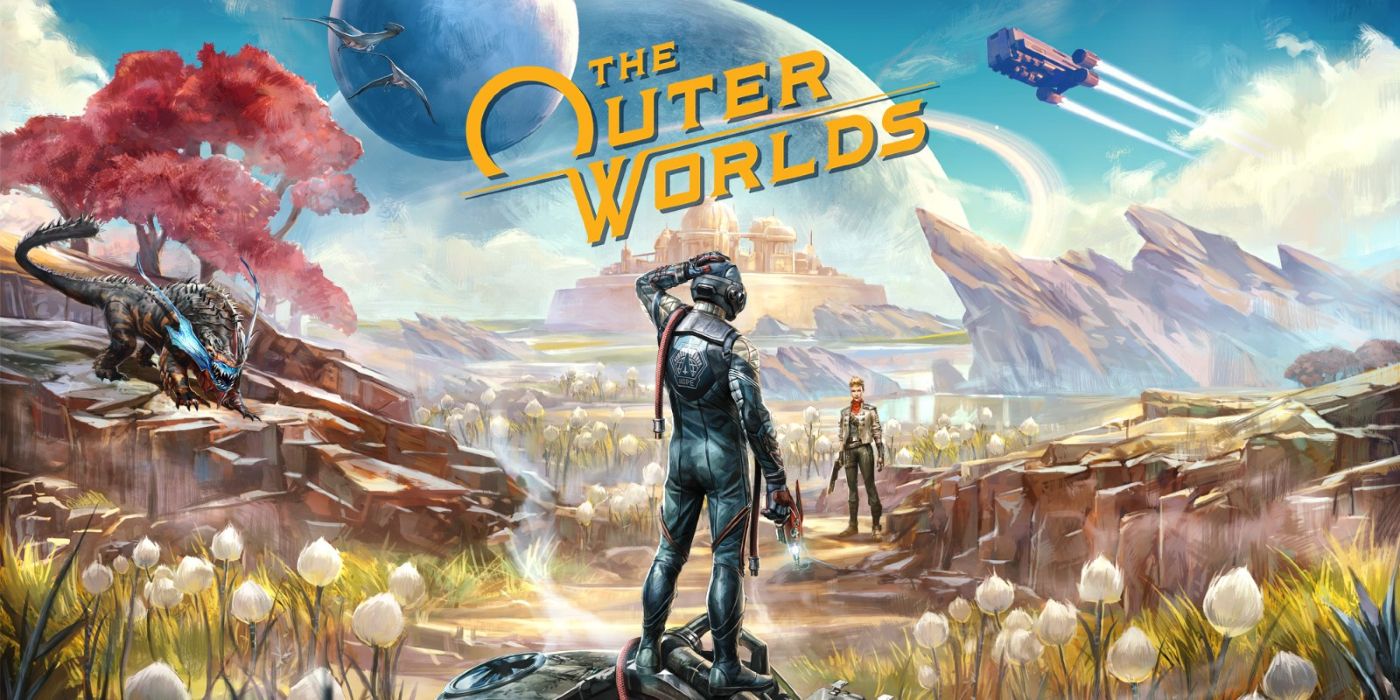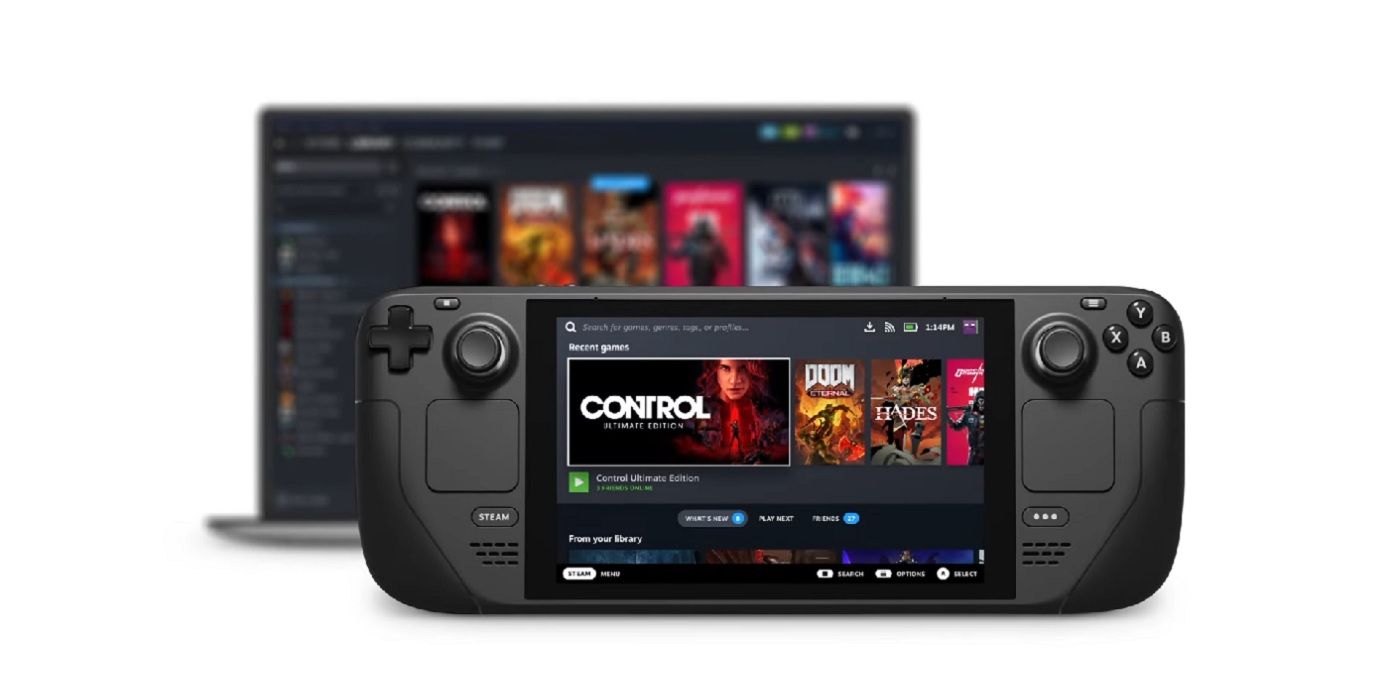For a long time, Nintendo has managed to remain relevant through its strong lineup of first-party games. With the release of the Nintendo Switch, which is a hybrid console, Nintendo has been able to sit alongside powerful home consoles such as the PS4 and the Xbox One. Consequently, several console games and PC games have been ported to the Nintendo Switch. While most games have leaped onto the Switch successfully, some have not fared well, including Obsidian's The Outer Worlds.
With Steam's portable gaming PC, the Steam Deck, there will once again be an opportunity to play triple-A games on the go. However, the console will face many of the problems that the Nintendo Switch does. If the Deck plans to be successful, it must avoid some of the pitfalls that the Switch fell into.
What Went Wrong With The Outer Worlds?
The Outer Worlds is a first-person RPG that takes players to alien worlds gripped by extreme capitalism. Players are introduced to a slew of memorable characters including Parvati the good-hearted engineer, and they also get to explore quirky settlements such as Edgewater. Although RPGs are a dime a dozen, The Outer Worlds allows itself to stand out thanks to its social commentary, well-written dialogue, and its beautifully colorful environments.
The Outer Worlds was met with a warm reception when it was first released on PC, PS4, and Xbox One. After managing to sell 2.5 million copies in about four months, a Nintendo Switch port seemed inevitable. Although the game is graphically intense, there have been AAA games ported to the Switch that remain visually impressive. This includes Bioshock: The Collection and Witcher 3. Another factor that gave gamers a reason to believe that the port would be great is that the game has good scalability on PC, allowing it to be played on weaker systems by fiddling with a few sliders and settings.
Unfortunately, when The Outer Worlds Switch port hit stores in June 2020, most people were less than impressed. Understandably, and expectedly, some sacrifices had to be made for the game to run on a portable console. However, some of the sacrifices are simply too much, to the point where it affects gameplay. On the Switch, The Outer Worlds' picturesque environments are turned into a blurry mess, and gamers have to settle for low-detail textures that leave the game a shadow of its PC and console counterparts.
The game simply taxes the Switch too much, and the result is some terrible pop-in of assets that can take seconds to load in. The world also feels much emptier due to the environmental assets that have been removed, leaving some outdoor settings void of trees and shrubs. This, combined with sub-30 FPS framerates, make The Outer Worlds simply unplayable to some.
What Steam Deck Developers Should Look Out For
There is a lot that developers can learn from the Switch's port of The Outer Worlds. Although the Steam Deck is an entirely different beast altogether, they are both portable systems that have to face the limitations that come with that. The Deck is a powerful device that strives to run AAA games at a minimum of 30 FPS, but overambitious ideas could be a stumbling block if developers are not careful.
When fine-tuning games for portable systems, it is inevitable that sacrifices will be made. However, some sacrifices are far too detrimental to a game. Some games are capable of taking a hit to their graphics without impacting gameplay, but that is not true across the board. Some titles need visual fidelity, and reducing it excessively results in a subpar experience. This is the case for The Outer Worlds, where much of the game's personality comes from the outstanding environmental design. When beautiful alien fields with waist-high dandelions are turned into a smudgy mess, a lot of the game's feel is lost.
A stable framerate is also critically important. A lot of sacrifices can be forgiven when dealing with portable gaming consoles, but an unstable framerate is not one of them. Having a jittery framerate, or one that constantly tanks when a lot is happening on-screen, can completely kill immersion and make a game feel utterly broken. Even 30 FPS can be acclimated to so long as it remains stable throughout the game. An acceptably high framerate is also necessary, and while most gamers probably understand that the Steam Deck will not be playing the latest releases at 120 FPS, anything below 30 FPS is still going to severely impact gameplay and make games unplayable for some.
With all these factors taken into account, perhaps the most important thing developers can do is be able to say no to optimizing games for the Steam Deck if it means making excessive sacrifices. Although the Steam Deck is a remarkably powerful device, there will inevitably be some games that do not tolerate being scaled down well. For such games, it is perhaps best to leave them be instead of butchering them until they can suboptimally run on the Deck. If games only run at 20 FPS or have to be turned into a bunch of blurry textures, then they should not be played on the Steam Deck at all.
According to Valve, the first batch of Steam Decks should reach customers in February 2022. However, Valve has sent out dev-kits to developers already. First impressions of the dev-kits from developers have been positive, and many have taken to Twitter to praise the gaming device and its capabilities. This includes Cliff Harris, the founder of Positech Games, who claims that titles such as Democracy 4 run well on the Deck and the "framerate is perfect." Mike Rose of No More Robots Ltd claims that Descenders can run at 50-60 FPS with ultra graphics turned on, and Yes, Your Grace "runs flawlessly." Hopefully, this means that most of Steam's library will be playable on the Deck and that severe scaling-back will not be necessary.
The Outer Worlds is available now on Nintendo Switch, PC, PS4, Xbox One.

